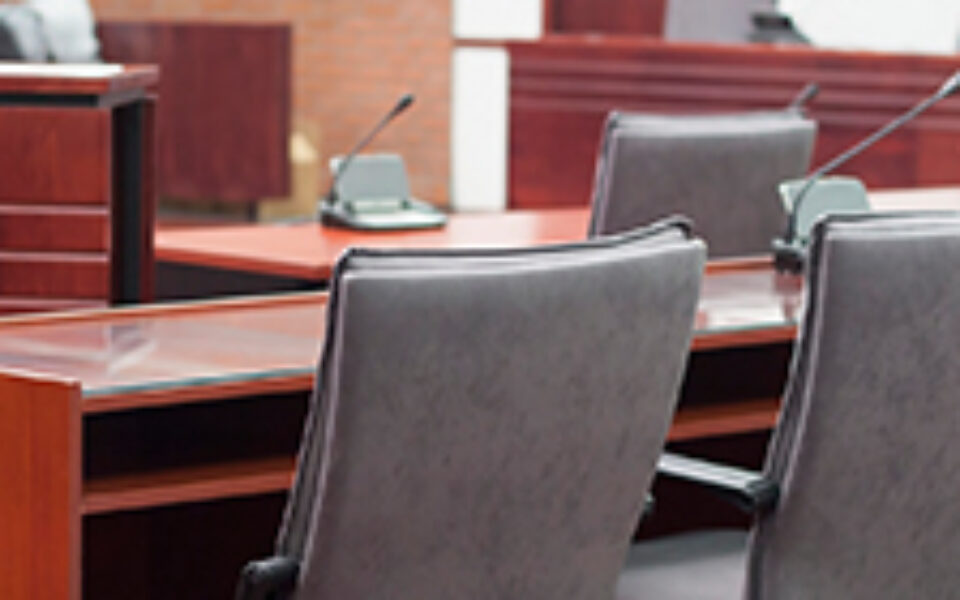Investigative Due Diligence: Getting to Know the "Devil" You Don’t Know
By Kati Allison-Boughton, Director, Advisory Services

Expert witness – a person whose education, training, and experience can provide the court with an assessment, opinion, or judgment within the area of his or her competence, which is not considered known or available to the general public. 1
Whether you are a litigator or a party to the litigation, you know the value that an expert witness can provide to a case. In some instances they are the most critical witness in a lawsuit. Expert testimony, which is often required by statute, is an invaluable way to provide jurors with factual information that could be scientific or technical in nature. For example, expert testimony is needed from business valuation experts or appraisers to establish the value of personal or real property. Similarly, doctors and psychologists are called on as experts to determine an individual’s state of mind or the condition of the body.As a result, attorneys involved in a case utilizing expert witness should remember the saying “better the devil you know than the devil you don’t”.
Most attorneys understand the importance of vetting potential expert witnesses before retaining them in any matter.However, it is equally important to vet your opponent’s experts. Many career experts have testified on different sides of common issues.If contradictory information is identified in a prior opinion of the opposing expert; it may be a critical turning point for your case.This is where Investigative Due Diligence comes into play, enabling legal advisors to gain and maintain a competitive edge.
Investigative Due Diligence uses a combination of confidential interviews and the cross referencing of public and private record databases to identify information that may assist an attorney to depose or cross-examine an opposing expert. When investigating an opposing expert, there are a number of areas that should be scrutinized.
For example, the expert’s credentials (degrees, certifications and publications) should be verified and compared to what is reported on the expert’s website or LinkedIn profile.The expert’s current resume should also be compared to old versions to see if there are any discrepancies.Once the expert’s credentials have been verified, the report should be reviewed to make sure that it conforms to the requirements of the various certifications.
All of the expert’s opinions should be reviewed to determine if the expert has ever made statements contradicting his opinion in the current case.This review is not limited to previous expert reports, deposition/trial testimony or published materials.It should also include statements at public speaking events, blog posts, comments on networking sites or in other media outlets, law review articles and any other non-published writings or materials attributable to the expert.
A public records search may reveal if the expert has been involved in any civil or criminal litigation that could impact his opinion.Additionally, the expert’s disciplinary records should be reviewed to see if the expert has been sanctioned.
Many cases have turned on refuting the opinions of the opposing expert.For example, a former doctor, who had signed expert affidavits in lawsuits for several years, knew his medical certification had lapsed when he signed the affidavits. It was estimated that he had reviewed, filed depositions or testified in approximately 300 cases after his certification had lapsed. Upon learning that the testifying doctor had not been certified when he testified, litigation was pursued to have the verdict overthrown.
In another case, involving insurance coverage, it was discovered that the opposing expert was named in a civil litigation involving his prior responsibilities as an executive at an insurance company. The prior complaint alleged conduct that was in direct contradiction to what his opinion was in the current matter and that after an adverse court ruling against the alleged conduct, a large settlement was paid by the executive’s prior employer.
So while conducting this research may seem cumbersome, it is well worth it to be fully informed when facing an opposing expert.
Mosby’s Medical Dictionary, 8th edition. 2009. Elsevier 25 Sep. 2014 http://medical-dictionary.thefreedictionary.com/expert+witness

















